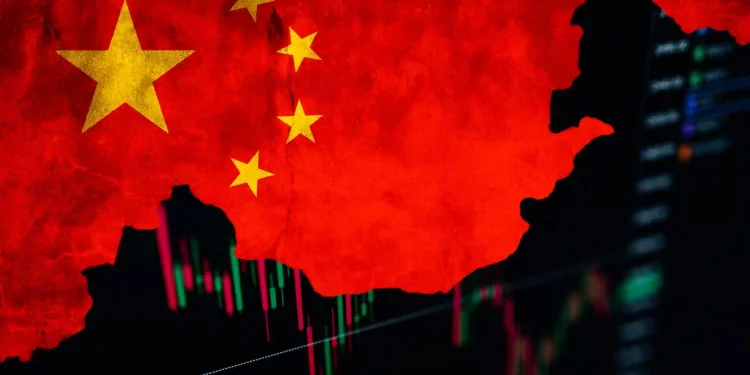Capital Bonds analysts explain the reasons for the substantial drop.
The 954-billion-yuan market for capital bonds issued by China’s city and rural commercial banks has shown signs of strain.
While Chinese banks have been viewed as a refuge during the global banking crisis, China’s smaller lenders are facing their own set of challenges in the country’s credit market. The 954-billion-yuan ($139 billion) market for capital bonds issued by China’s city and rural commercial banks has shown signs of strain right before the collapse of a few lenders in the US and Europe. According to Bloomberg, the issuance of Additional Tier 1 or Tier 2 notes by mainland banks dropped 70% from a year earlier in the first quarter of this year, reaching the lowest quarterly level since 2019.
Although regional lenders’ average capital adequacy ratios were above the authorities’ target of 10.5%, standing at more than 12% as of December 31st, smaller banks will face capital pressure if the bond issuance slump continues. This could potentially undermine the lenders’ ability to support the government’s economic growth efforts and threaten financial stability.
Shujin Chen, Head of China FIG Research at Jefferies Financial Group, explained that the primary issue for small and medium sized-banks is that localities require them to put more loans into the real economy and support local urban-investment companies, while not having enough capital. Local governments are facing fiscal difficulties of their own, which further exacerbates their problem.
AT1 and Tier 2 bonds are crucial for Chinese banks to maintain sufficient capital ratios, but they are also considered among the riskiest debt sold by lenders since they can be written down if the issuer experiences significant stress. Recent failures, such as the Silicon Valley Bank and Credit Suisse Group AG’s AT1 bonds, have reminded investors of these risks. In 2020, Baoshang Bank Co.’s Tier 2 notes were written off after the company was taken over by Chinese authorities.
Analysts have pointed to regulatory changes and some firms’ surprise decisions to not redeem Tier 2 debt as reasons for the evaporated demand for capital bonds. Chinese investors expect issuers to redeem the notes on their first call date, which is not always the case. Moreover, investors are seeking higher risk premiums amid concerns about real estate loans and regional government debt, which has led to an increase in the average coupons on AT1 and Tier 2 bonds sold by smaller Chinese banks in 2023.
Smaller lenders have seen the quality of their assets and capital levels deteriorate due to China’s slowed economy during the pandemic. Although the government has shown a “high supportive attitude” for the sector, S&P Global Ratings analyst Micheal Huang warns that some banks could fall into a crisis if that support becomes selective.
China’s regional lenders account for nearly one-third of the sector’s total assets, with more than 100 trillion yuan. However, their bad-loan ratios are often higher than those of the country’s giants due to their lending leaning towards uncompetitive local companies and government pet projects.
Tianfeng Securities Co. analyst Sun Binbin released a report last week highlighting that 43 issuers had not called a combined 52 of Tier 2 bonds as of late March. Sun mentioned that some of these issuers chose not to redeem the notes because it would lower their capital levels, which could lead to smaller banks facing greater difficulty replenishing their capital in the future.
This nonredemption trend is not limited to China as two German lenders recently announced that they will not call AT1 bonds later this month as refinancing such notes has become more expensive globally after the Credit Suisse wipe-out.
Furthermore, capital bond issuance has slowed down at China’s six banking giants. According to Bloomberg-compiled data, it dropped 32% in the first quarter, hitting a two-year low of 150 billion yuan. The slow activity only picked up in the final days of March as the banks tried to rebuild their capital following the record new-loan activity that kicked off this year. Due to the recent lack of new issuance by city and rural commercial banks, they might be forced to seek other options for capital replenishment, such as selling new shares or convertible notes. Some local governments have historically sold special bonds to fund capital injections at small lenders.

















